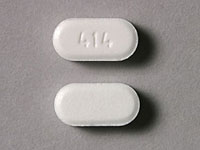Zetia is nothing but placebo
The long-awaited results of a trial of Zetia, a cholesterol-lowering drug prescribed to about a million Americans, shows the drug confers no medical benefit to users.

In fact, the pace at which artery-clogging plaques formed within vessels almost doubled in patients taking Zetia (ezetimibe) along with another cholesterol-lowering drug, Zocor (simvastatin), compared to those taking Zocor alone, the study found, HealthDay News reports.
Zetia is used to treat high cholesterol. Zetia is sometimes given with other cholesterol-lowering medications.
Zetia (ezetimibe) is in a class of lipid-lowering compounds that selectively inhibits the intestinal absorption of cholesterol and related phytosterols. The chemical name of ezetimibe is 1 - (4 - fluorophenyl) - 3(R) - [3 - (4 - fluorophenyl) - 3(S) - hydroxypropyl] - 4(S) - (4 - hydroxyphenyl) - 2 - azetidinone.
Ezetimibe is an anti-hyperlipidemic medication which is used to lower cholesterol levels. It acts by decreasing cholesterol absorption in the intestine. It may be used alone when other cholesterol-lowering medications are not tolerated, or together with statins (e.g. ezetimibe/simvastatin) when cholesterol levels are unable to be controlled on statins alone.
It is marketed by Schering-Plough and Merck under the trade names Ezetrol, Zetia and Ezemibe. Ezetimibe was originally discovered by a team of four Schering-Plough research chemists; Drs. Stuart B. Rosenblum, Duane A. Burnett, John W. Clader and Brian A. McKittrick.
The hypocholesterolemic effect of ezetimibe was evaluated in cholesterol-fed Rhesus monkeys, dogs, rats, and mouse models of human cholesterol metabolism. Ezetimibe was found to have an ED50 value of 0.5 µg/kg/day for inhibiting the rise in plasma cholesterol levels in monkeys. The ED50 values in dogs, rats, and mice were 7, 30, and 700 µg/kg/day, respectively. These results are consistent with Zetia being a potent cholesterol absorption inhibitor.
Subscribe to Pravda.Ru Telegram channel, Facebook, RSS!


